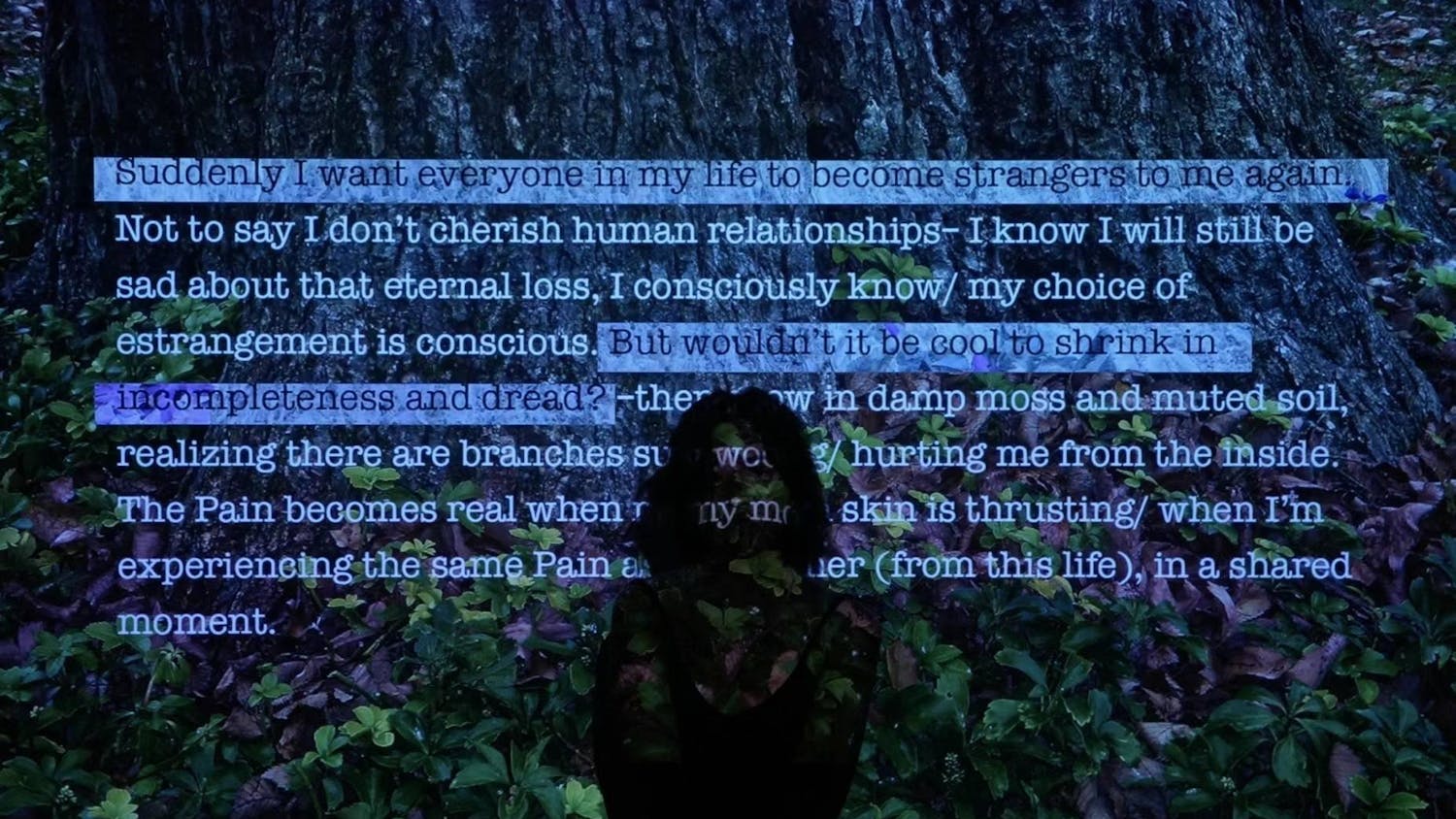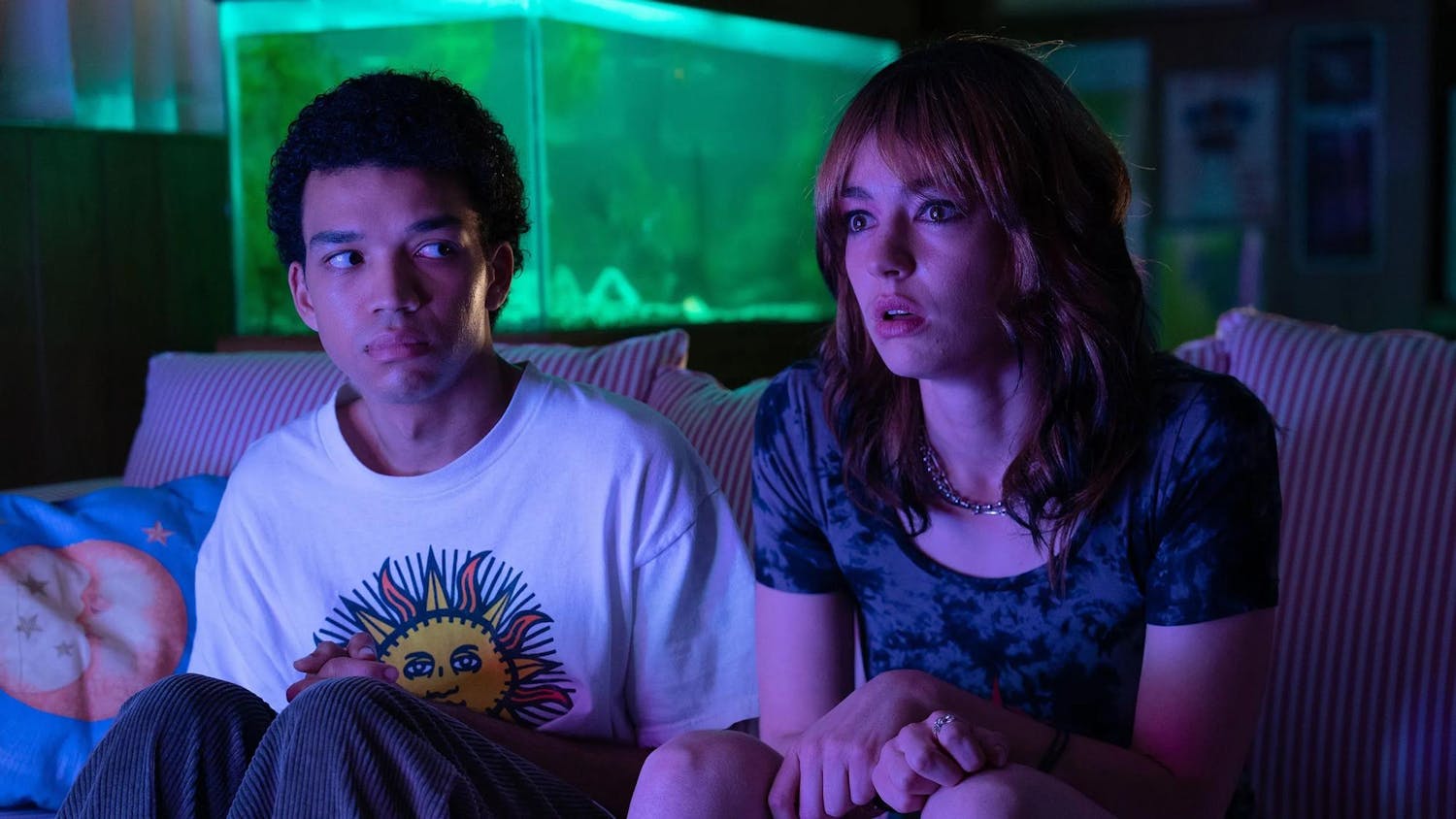University Organist Mark Steinbach played a concert featuring the music of Johannes Brahms, Gustav Mahler and Anton Heiller in Sayles Hall Sunday evening. Baritone Andrew Garland, a voice teacher in the Applied Music Program at Brown, accompanied Steinbach for the Mahler songs.
The seed that grew into last night's show was planted in November when Steinbach and Garland first met at the November concerts celebrating the 200th birthday of Franz Liszt. Steinbach said he had been planning a much different show, but when he heard Garland sing, he could picture him singing Mahler right away. Steinbach chose to begin the concert with Brahms, and to follow with Mahler and the lesser-known Heiller, three composers who spent most of their lives in Vienna, Austria. Vienna then became the theme of the evening. The two began to run through the music together in January.
Steinbach said he has "lived with this music" for many years - he played some of these pieces in a concert more than a decade earlier, and he even wrote papers on some of them in graduate school. Steinbach arranged the Mahler pieces for organ himself, as they were previously written for voice and piano or voice and orchestra. Garland said it is a privilege to sing Mahler because, as a professional singer, he often does not have the opportunity to sing such classic repertoire.
The concert began with the "Praeludium und Fuga in G Minor, WoO 10" of 1857 by Brahms. Composed when Brahms was just 24 years old and studying counterpoint and organ, the music sounded bold and reminiscent of the Baroque period.
The second piece was the "Passacaglia in C minor," written in Austria by Heiller between 1940 and 1942. Steinbach's notes in the program indicated that this was written during the time of the Nazi annexation of Austria, just before the military drafted Heiller in July 1942. Also inspired by Johann Sebastian Bach's "Passacaglia and Fugue in C minor," the music was a dark rendition of an old Baroque genre, building to a thunderous climax before fading away.
Next were the five Mahler songs of the "Ruckert-Lieder" that both Garland and Steinbach seemed particularly excited to perform. The archetype of melancholy and poetic love, Mahler's music was particularly emotional. Steinbach described these songs as "intimate ... very intricate and complex, yet slow and quiet." Garland took great care to articulate each word of the German he sung, both literally and emotionally. Though protocol is to wait for all the songs to be sung before applause, after Garland's powerful performance of the third song, "Um Mitternacht" ("At Midnight"), the crowd immediately broke into applause.
The concert closed with Heiller's 1977 "Vorspiel," "Zwischenspiel" and "Nachspeil" from Vesper, a service of evening prayer in the Catholic Church. Written for the 850th anniversary of the City of Graz and the dedication of a new organ at the cathedral there, the music was a cornucopia of tones, textures, counterpoint and motives. Steinbach described Heiller as "Mahler on steroids ... like Stravinsky on organ" with "jazzy harmonies and jazzy rhythms." This accurately described the sound of this final piece.
Clearly moved by Mahler, entertained by Brahms and intrigued by Heiller, the audience responded enthusiastically to the performance.




